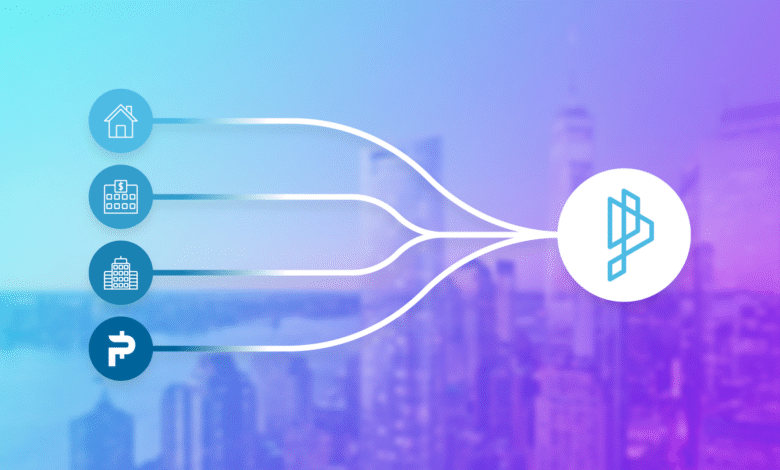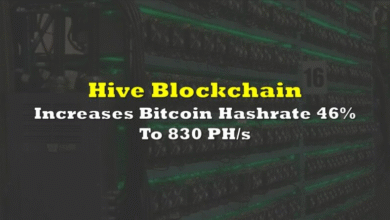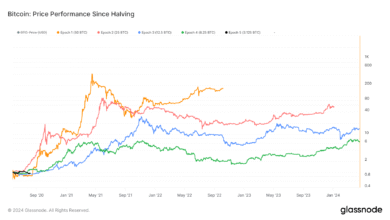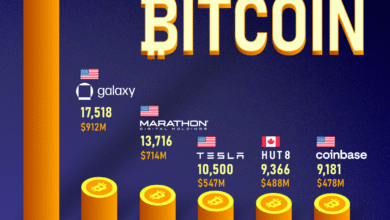Tokenized Real Estate: Dubai Land Department Initiative

Tokenized real estate is revolutionizing property investment in Dubai, thanks to an innovative partnership between the Dubai Land Department and Ctrl Alt. This pioneering initiative utilizes the XRP Ledger, providing a robust and secure platform for real estate tokenization and blockchain property registration. By facilitating fractional ownership, this project allows investors to co-own properties starting from just AED 2,000, making real estate investment accessible to a broader audience. As the Dubai Land Department embraces blockchain technology, the initiative aims to enhance transparency, efficiency, and regulatory compliance within the rapidly evolving real estate market. Industry leaders anticipate that this move will contribute to a burgeoning tokenized real estate market valued at an impressive AED 60 billion by 2033, aligning with Dubai’s ambitious Real Estate Sector Strategy 2033.
The emergence of tokenized real estate marks a significant shift in the landscape of property investments, paving the way for decentralized real estate ownership. Through this initiative, investors can engage in fractional ownership, allowing them to diversify their portfolios without the traditional barriers of entry. The integration of blockchain technology not only streamlines property registrations but also ensures that transactions are transparent and secure. With platforms like PRYPCO Mint simplifying the investment process, the potential for real estate tokenization is immense, especially within vibrant markets like Dubai. As the sector evolves, more individuals will have the opportunity to become stakeholders in the thriving real estate market.
Understanding Tokenized Real Estate in Dubai
Tokenized real estate is revolutionizing the way properties are bought and sold, especially in thriving markets like Dubai. With the recent partnership between the Dubai Land Department (DLD) and Ctrl Alt, the introduction of blockchain technology is enhancing the efficiency and security of real estate transactions. This system allows for assets to be digitized and divided into tokens, making it easier for multiple investors to co-own properties. By using the XRP Ledger, which Is designed for quick and low-cost transactions, the potential for disrupting traditional real estate practices is immense.
Investors now have the opportunity to engage in real estate investment with as little as AED 2,000, opening the doors to fractional ownership models that were previously inaccessible. This democratization of property investment not only increases participation but also adds a layer of transparency, as all transactions are recorded on an immutable blockchain. The DLD’s forward-thinking approach aligns with Dubai’s ambitious goal of having a tokenized real estate market estimated to reach AED 60 billion by 2033, signifying a new era for property investment.
Benefits of Blockchain Property Registration
The implementation of blockchain property registration by the Dubai Land Department offers numerous advantages for both investors and the overall real estate market. By utilizing the XRP Ledger, transactions become faster and more secure, minimizing the risks associated with traditional property transfers. Each transaction is recorded transparently and can be easily verified, which not only streamlines the process but also builds trust among investors. This feature is particularly significant in a high-value market like Dubai, where the stakes are considerable.
Additionally, blockchain technology enhances data integrity and prevents fraud, two prevalent issues in the real estate sector. The DLD’s initiative allows for every title deed to be tokenized and traced back to its original state, eliminating disputes over ownership and ensuring smooth transitions between buyers and sellers. As investors gravitate towards markets that embrace innovative solutions, Dubai’s proactive stance on blockchain property registration positions it as a global leader in real estate innovation.
Furthermore, this advancement is anticipated to foster a more dynamic real estate landscape, where buying, selling, and managing properties can be conducted with unprecedented ease and security.
Fractional Ownership and Its Implications
Fractional ownership is a growing trend in real estate investment, and the recent initiatives by the Dubai Land Department are making it more accessible than ever. By allowing multiple investors to purchase fractions of a property through tokenization, individuals can now invest in lucrative real estate opportunities without the need for substantial initial capital. As a result, smaller investors who may have previously felt excluded from the market can now participate collectively, maximizing their potential returns while sharing the risks.
With the advent of the PRYPCO Mint platform, fractional ownership not only simplifies investment processes but also enhances liquidity, allowing investors to buy or sell their tokens on secondary markets. This flexibility is a significant advantage, as it offers investors the freedom to manage their portfolios actively, something hardly achievable in traditional property ownership structures.
The Role of the Dubai Land Department in Real Estate Innovation
The Dubai Land Department is at the forefront of innovation in the real estate sector, embracing technologies that reshape how properties are owned and managed. By initiating the Real Estate Tokenization Project, the DLD is adapting to the rapidly evolving digital economy. The collaboration with organizations like Ctrl Alt and VARA showcases its commitment to integrating cutting-edge technology into regulatory frameworks.
This strategic partnership not only aims to protect investors but also aligns with the broader economic vision of Dubai, focusing on sustainability and modernization. By transforming the property sector through tokenization, the DLD is setting a precedent that could influence global real estate practices and inspire other regions to adopt similar systems.
Investment Opportunities with Tokenization
The rise of tokenized real estate presents unique investment opportunities for both seasoned investors and newcomers alike. By leveraging the benefits of blockchain and reduced entry barriers, individuals can diversify their portfolios and enter a market that is traditionally dominated by high net-worth individuals. The ability to invest a smaller amount, such as AED 2,000, enables a wider demographic to explore real estate investment, potentially transforming how assets are accumulated and viewed.
Moreover, the growth of digital assets and tokenization in real estate aligns perfectly with the increasing global acceptance of cryptocurrencies and blockchain technology. As investors become more familiar with these concepts, the synergy between traditional assets and digital innovations is likely to foster a novel landscape in investment strategies.
Future of Real Estate with Blockchain Technology
The future of real estate is poised for a transformation thanks to blockchain technology and innovative initiatives like those from the Dubai Land Department. The integration of the XRP Ledger into property transactions signifies a shift towards a more robust infrastructure that prioritizes security, speed, and transparency. As the industry evolves, we can expect to see blockchain technology being utilized for a variety of applications beyond title registration, including smart contracts, automated transactions, and enhanced property management solutions.
As these advancements continue to make waves in the industry, Dubai is setting a global benchmark, demonstrating how technology can be harnessed to optimize and revolutionize traditional sectors. The expectations for a tokenized real estate market valued at AED 60 billion by 2033 reflects the exciting possibilities for property investment, promising immense growth and opportunities for investors.
The Impact of the Virtual Assets Regulatory Authority
The establishment of the Virtual Assets Regulatory Authority (VARA) marked a critical milestone in promoting innovation within Dubai’s financial and real estate sectors. By providing the necessary regulatory framework for the tokenization initiative, VARA plays a pivotal role in ensuring that the integration of blockchain technology aligns with local regulations and international best practices. This regulatory oversight aims to instill confidence among investors and foster a safer investment environment.
With VARA’s involvement, the tokenization of real estate title deeds not only adheres to compliance protocols but also encourages responsible investment practices. This level of governance could serve as a model for other regions looking to navigate the complexities of blockchain integration into their real estate markets, fostering a harmonized approach to virtual assets.
Regulatory Challenges in Tokenization Projects
While the Dubai Land Department’s initiative represents a significant progression in real estate tokenization, the project is not without its regulatory challenges. The rapid evolution of blockchain technology often outpaces existing regulations, posing dilemmas regarding compliance and consumer protection. Ensuring that these new tokenized assets meet legal standards, while simultaneously encouraging innovation, presents a balancing act for regulators.
Moreover, as fractional ownership models gain traction, there is a growing need for clear guidelines on investor rights, property rights, and how tokenized assets can be traded. The DLD, in conjunction with VARA, is tasked with addressing these challenges to create a robust legal framework protecting all stakeholders involved.
Educating Investors on Tokenized Real Estate
As the market for tokenized real estate in Dubai develops, investor education will be crucial for the long-term success of the initiative. Many potential investors may not fully understand the implications of blockchain technology and tokenization, which could hinder participation. Therefore, the DLD and Ctrl Alt must prioritize educational programs to inform investors about the benefits and risks associated with tokenized investments.
Workshops, webinars, and informational resources will play a critical role in demystifying the concept of tokenized real estate. By empowering investors with knowledge, the DLD can cultivate a more informed investment base, paving the way for widespread acceptance and participation in this innovative real estate market.
Frequently Asked Questions
What is tokenized real estate and how does it relate to the Dubai Land Department?
Tokenized real estate refers to the process of creating digital tokens on a blockchain that represent ownership in physical property. The Dubai Land Department (DLD) has embraced this innovative approach through its Real Estate Tokenization Project to facilitate property investment and enhance transparency.
How does the XRP Ledger support the tokenization of real estate assets?
The XRP Ledger provides a secure and compliant infrastructure for the tokenization of real estate assets. It allows for the creation and trade of digital tokens that represent real estate investments, ensuring efficiency and security in property transactions.
What are the benefits of fractional ownership in tokenized real estate through the Dubai Land Department?
Fractional ownership allows multiple investors to co-own properties with lower investment thresholds. Through the Dubai Land Department’s initiative, individuals can invest in real estate with a minimum of AED 2,000, making property investment more accessible and diversified.
What role does blockchain property registration play in the tokenization of real estate?
Blockchain property registration enhances transparency and efficiency in the real estate market. By using blockchain technology, the Dubai Land Department ensures secure ownership records, reduces fraud, and simplifies the transfer of property titles in tokenized real estate transactions.
What is the projected value of the tokenized real estate market in Dubai by 2033?
The tokenized real estate market in Dubai is projected to reach AED 60 billion (approximately $16 billion) by 2033. This growth aligns with the Dubai Land Department’s Real Estate Sector Strategy 2033 and aims to modernize the real estate investment landscape.
How can I participate in tokenized real estate investments through the Dubai Land Department’s initiative?
You can participate in tokenized real estate investments by using the PRYPCO Mint platform, which allows you to buy fractional ownership of properties starting with an investment as low as AED 2,000.
What impact does the Real Estate Tokenization Project have on investor participation in Dubai?
The Real Estate Tokenization Project by the Dubai Land Department is expected to significantly increase investor participation by introducing accessible, transparent, and innovative investment options in the real estate market.
How does the collaboration between Ctrl Alt and the Dubai Land Department enhance real estate opportunities?
The collaboration between Ctrl Alt and the Dubai Land Department enhances real estate opportunities by leveraging blockchain technology for secure property transactions and enabling investment in tokenized real estate, meeting modern investor demands.
| Key Points | Details |
|---|---|
| Partnership Launch | Ctrl Alt and Dubai Land Department collaboration for Real Estate Tokenization Project. |
| Technology Used | Utilizes XRP Ledger for secure and compliant tokenization framework. |
| Investment Opportunity | Allows fractional ownership with minimum investment of AED 2,000 via PRYPCO Mint platform. |
| Market Impact | Expected to contribute to a tokenized market valued at AED 60 billion ($16 billion) by 2033. |
| Goals | Aligned with Dubai’s Real Estate Sector Strategy 2033 and aims to enhance transparency. |
| CEO’s Comments | Matt Ong emphasizes increased investor participation and modernization of the real estate sector. |
Summary
Tokenized real estate is transforming the way property investments are made in Dubai. The recent initiative by the Dubai Land Department in partnership with Ctrl Alt introduces an innovative model where fractional ownership is enabled through the XRP Ledger. As a result, investors can now engage in the real estate market with a lower financial barrier and enhanced transparency. This groundbreaking approach not only aligns with the city’s economic objectives but also positions Dubai as a leader in adopting blockchain technology for property transactions.




